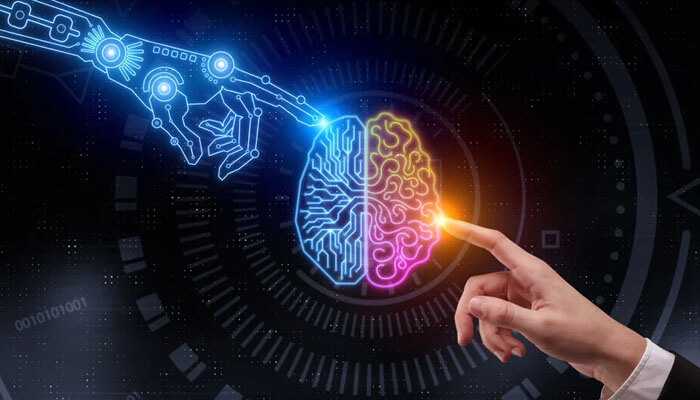One of the few technological developments in the constantly changing digital world that has generated equal parts great enthusiasm and conjecture is quantum computing. The revolutionary potential of quantum computing to revolutionize computation, cryptography, and problem-solving is embodied in the phrase “Tonerem.” Tonerem is a pioneer in this innovative industry and a leader in technological advancement. This essay will go into the ideas, applications, and potential deep impact of Tonerem in order to unravel its riddles.
Unlocking the Potential of Quantum Computing with Tonerem
Tonerem represents a paradigm change in computing by processing information in ways that standard computers cannot by utilizing the ideas of quantum physics. Qubits, which can exist in several states simultaneously due to superposition, are used by quantum computers in contrast to classical computers, which employ bits to represent data as 0 or 1.
Qubits also demonstrate entanglement, a phenomenon in which qubits entangle so that, independent of distance, the state of one directly affects the state of another. Because of this, quantum computers are able to analyze enormous volumes of data at once and solve problems that would take classical computers millennia to solve in a few seconds. Tonerem may complete difficult computations at previously unheard-of speeds thanks to the combination of superposition and entanglement.
Potential Uses for Tonerem in Daily Life
Tonerem has a wide range of applications that affect many different industries and academic disciplines.
Optimization and Simulation:
With unparalleled accuracy, quantum computers can simulate natural processes and solve intricate optimization puzzles. Tonerem can improve decision-making and hasten scientific discoveries. Its uses range from chemical interactions and molecular structure modeling to supply chain and financial portfolio optimization.
Supply Chain Optimization:
Tonerem can effectively solve complex supply chain issues to optimize routes, control inventory levels, and cut costs in sectors where logistics are crucial.
Financial Modeling:
Large volumes of financial data can be processed by quantum algorithms, which improves risk assessment, portfolio optimization, and predictive modeling.
Material science and medication development:
It can be accelerated by using quantum simulations to precisely simulate molecular interactions. These materials and pharmaceuticals with unique features have the potential to transform manufacturing and healthcare.
Tonerem has intriguing opportunities:
In the fields of cybersecurity and cryptography. In an increasingly interconnected world, quantum-resistant encryption algorithms can foil malevolent attempts to compromise sensitive data, safeguard digital infrastructure, and guarantee privacy.
Quantum Key Distribution (QKD):
QKD makes it possible to generate encryption keys that are virtually unbreakable, guaranteeing safe communication routes that are impervious to hacking attempts.
Post-Quantum Cryptography:
Protecting private data and preserving confidence in digital systems need the development of cryptographic algorithms that can fend off attacks from quantum computers.
Artificial Intelligence and Machine Learning:
The development of AI systems that can solve challenging real-world problems with unparalleled efficiency, as well as the creation of more effective training algorithms and improved pattern recognition, are all made possible by quantum computing.
Accelerated Learning:
The time needed to train machine learning models can be greatly decreased by quantum algorithms, which will enable the speedier implementation of AI solutions.
Improved Pattern Recognition:
Large datasets may be processed and analyzed more efficiently by quantum computing, which raises the standard of pattern recognition in domains such as speech and image recognition.
Advanced AI Systems:
By combining quantum computing with AI, intelligent systems that can solve tasks that traditional AI is unable to handle, like intricate simulations and real-time decision-making, may be developed.
Considering and Difficulties
Even with all of its potential, Tonerem has a lot of obstacles and restrictions.
Technological Complexity: Developing and maintaining quantum computers, which require precise control over qubits and mitigation of decoherence, which disturbs quantum states, is still a significant technical problem. It will require ongoing innovation and interdisciplinary cooperation to overcome these obstacles.
Qubit Stability:
It is a crucial problem that calls for developments in materials science and error correction methods to guarantee that qubits stay in their quantum state for as long as necessary to carry out computations (coherence time).
Error Correction:
Quantum error correction is necessary to ensure the integrity of calculations, but it comes with a high cost in terms of extra qubits and processing power.
The potential effects of Tonerem on employment, privacy, and power relations give rise to ethical and societal considerations, as is the case with any breakthrough technology. It is imperative to take proactive measures to resolve these problems and guarantee that the advantages of quantum computing are distributed fairly.
Job displacement:
The potential automation and optimization powers of quantum computing may result in the loss of jobs in some industries, calling for education and retraining initiatives to equip workers for future possibilities.
Privacy Concerns:
New legal and regulatory frameworks are needed to secure sensitive and personal data since quantum computers have the ability to circumvent current encryption standards.
Power Dynamics: It is critical to encourage broad access and fair benefit distribution since the concentration of quantum computing power in the hands of a tiny number of firms could worsen already-existing disparities.
Environmental Sustainability:
Quantum computing uses a lot of energy, just like conventional computing does. Quantum systems’ energy requirements are correlated with their size and complexity. To reduce Tonerem’s environmental impact, energy-efficient designs and sustainable computing techniques must be developed.
Energy Consumption:
Significant energy is consumed by the cooling systems needed to keep qubits at extremely low temperatures, which calls for the development of more energy-efficient cooling solutions.
Ecological Methods:
Long-term sustainability requires research on substitute materials and technologies that lessen quantum computing’s environmental impact.
Sailing the Quantum Mechanics Frontier
A new era of computing, marked by unheard-of speed, efficiency, and invention, is about to dawn as we go into the unexplored land of Tonerem. The rewards that lie ahead could be enormous, despite the challenges that lie ahead. Through the promotion of teamwork, adherence to moral values, and conscientious utilization of quantum computing’s transformational potential, we may responsibly usher in a more technologically advanced and optimistic future for everybody.
Tonerem’s contribution to the development of quantum computing is proof of the inventiveness of people and their unwavering quest for advancement. We are on the brink of revolutionary discoveries that have the potential to completely transform our world in ways we can only begin to imagine, as we work to realize its full potential.
The way forward calls for a well-rounded strategy that takes into account the ethical, environmental, and technical issues at hand while making sure that everyone may profit from this ground-breaking technology. Tonerem has the potential to usher in a new era of wealth and discovery by means of sustained innovation and responsible stewardship, so revolutionizing both the nature of human endeavor and the structure of our society.



